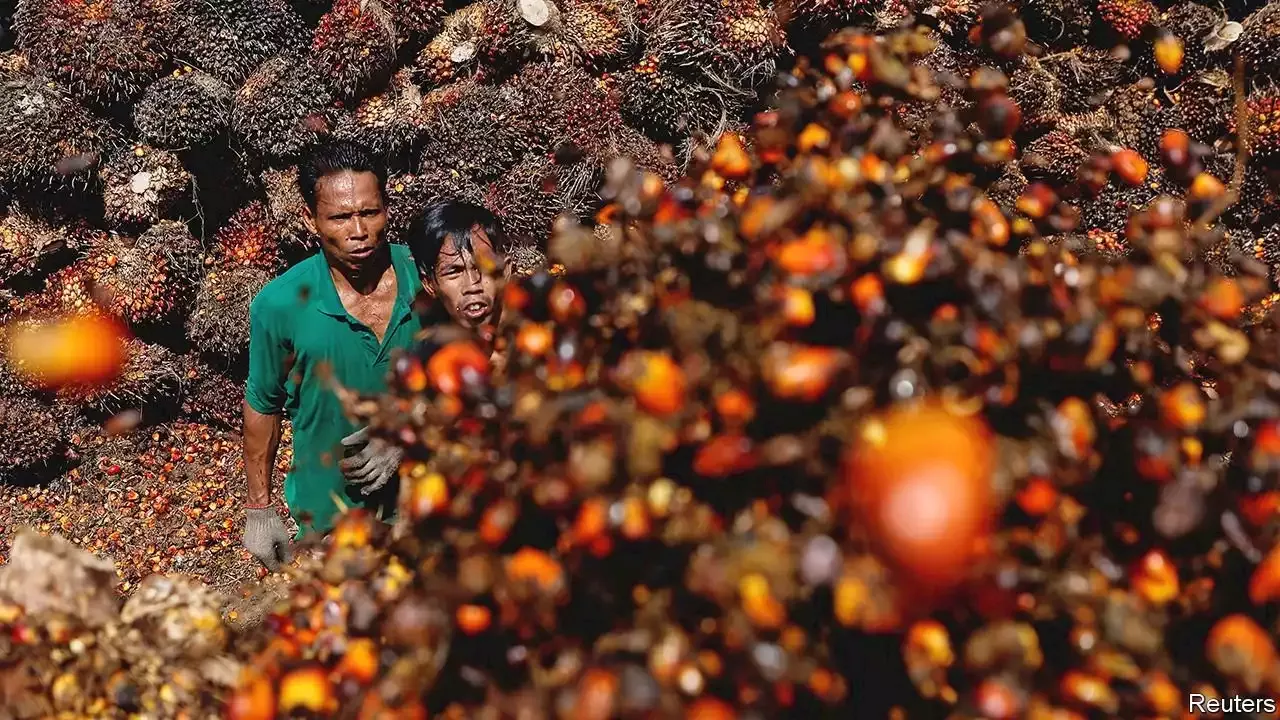Save time by listening to our audio articles as you multitaskExports from war-torn Ukraine have all but stopped. Russia has placed an export quota on its sunflower oil. Worries about scarce supplies have led countries including Egypt and Turkey to ban exports of edible oils. And from April 28th Indonesia has banned exports of palm oil, another widely traded variety.
The archipelagic country sold $18bn-worth of the stuff abroad in 2020, accounting for half of all palm-oil exports. So the move sent prices, which had dipped after the initial war-induced spike, soaring again . A tonne of palm oil for delivery in May is trading at over $1,700, 70% higher than the average spot price in 2021. This is piling more inflationary pressure on global producers of consumer goods—and sabotaging their environmental bona fides.
Unilever, a soap-to-soup group, spent $2.7bn on palm oil last year, around 15% of its total spending on commodities. Procter & Gamble, a similarly sprawling giant, and big packaged-goods firms like Mondelez and Nestlé are in a similar pickle. Everyone is paying more for soyabean and other alternative oils, too, so substituting one kind for another would bring little financial relief. Investors typically view the big consumer firms as being resilient to economic shocks.
The ban, which does not have a specified end date, will also complicate the companies’ efforts to present themselves as environmentally responsible. Palm-oil production has historically often come at the expense of rainforests, which were razed in places like Indonesia to make room for plantations. Today Nestlé says that 90% of the palm oil it purchased in 2021 was certified as deforestation-free, thanks to close monitoring of supply chains, from the plantation to the port.
destroy the amazon forest 👍👍👍
Your clients not in? Bad advice? Hmmm. Tricky situation. For you. Funny business economics. Too divorced from reality.
